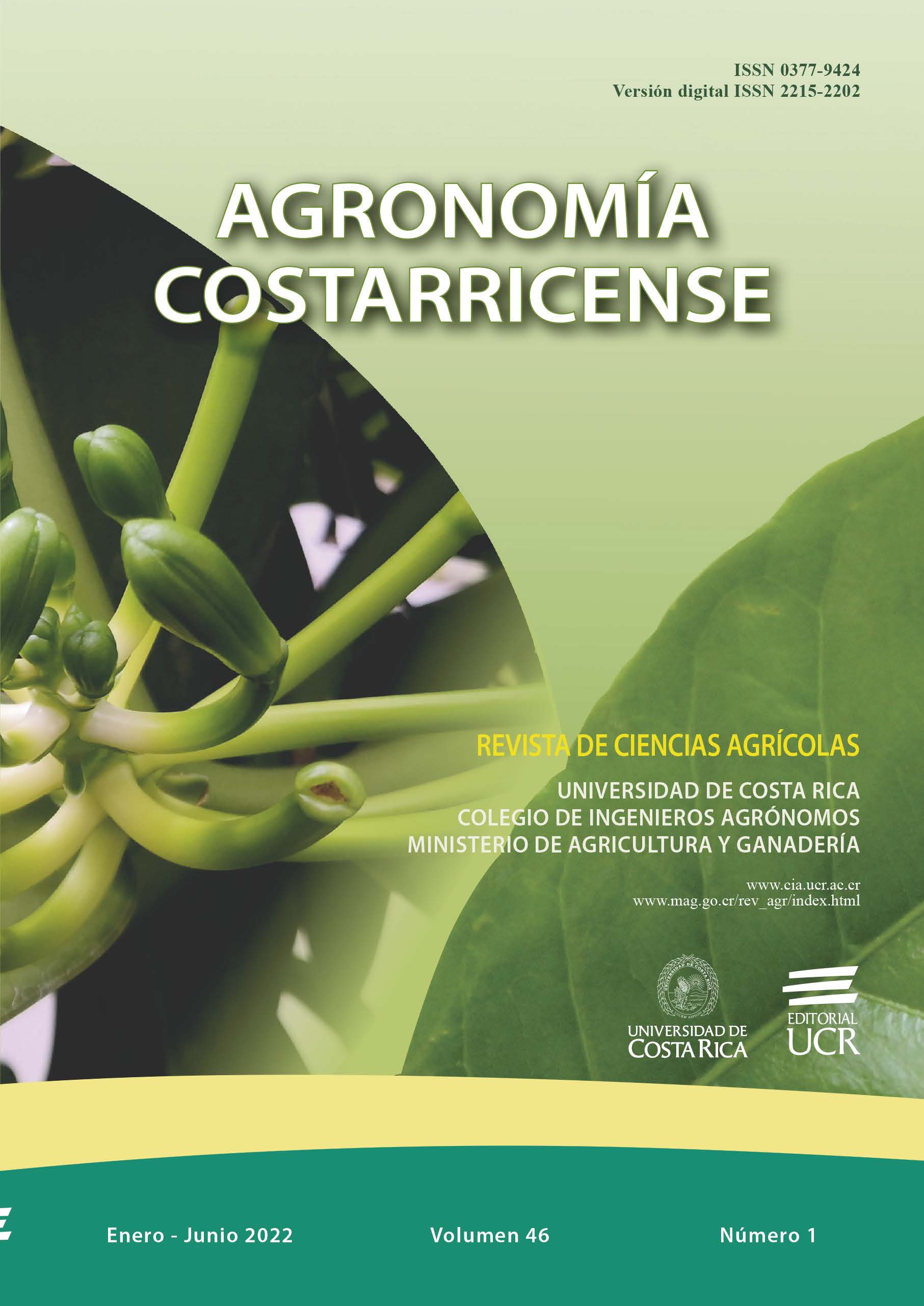Abstract
Introduction. Foliar nutrient concentration in forestry species of Central America is scarce. There is need to develop data to help in satisfactory handle nutrition of these crops. Objetive. To define “normal” foliar levels of nutrients considered as those that after eliminating atypical values in a histogram remain in the first and third quartiles of a normal frequency distribution of data available. Materials and methods. Foliar samples of forestry species collected in Costa Rica, Panamá, Guatemala, México and Colombia were analyzed and data were used to conform a data base with 3566 entries, a subset of data was prepared to generate the information for the 9 species considered in the present document obtained from 3 altitudinal belts. Analyses performed included N-P-K-Ca-MgS-Fe-Mn-Zn-B-Cu-Al-Na. Results. Information presented is the first approximation about foliar total concentration of nutrients of nine forestry species in Central America growing in the Tropical Humid-Very Humid (4.23-6.77%), Tropical Seasonally Dry (4.65-6.05%) and Premontane (5.83-9.36%) altitudinal belts. Foliar concentrations of Al in the Tropical Humid Very Humid and N in the Tropical Seasonally Dry were particularly large. The percentage of main forestry species analyzed was distributed as C. alliodora (9.36), V. guatemalensis (6.77), C. odorata (6.58), G. arborea (6.05), P. quinata (5.91), A. acuminata (5.83), V. ferruginea (4.81), T. grandis (4.65) and T. amazonia (4.23). Conclusions. The presence of V. guatemalensis and V. ferruginea in the Tropical Humid-Very Humid belts affected foliar concentrations to high values (mg.L-1) of Al (13 470-22 172)>B(112- 130)>Na(401)>P(0.54-0.68%) and that of T. amazonia the concentrations of P(0.59%), B(164 mg.L-1), and Cu(46 mg.L-1). In the Tropical Seasonally Dry Tropical Forest none of the species studied (G. arborea, T. grandis and P. quinata) showed high foliar concentrations of any element. Foliar values found for N(3.57)>K(1.13) in A. acuminata, of N(3.45)>Ca(3.29)>K(1.24) >Mg(1.02) in C. alliodora, and of N(3.22) in C. odorata in the Premontane belt were considered as high.


